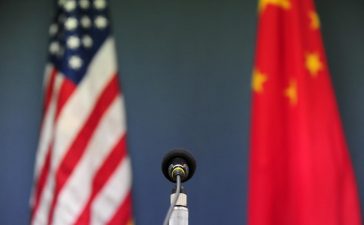Twitter has lost a bid to have a complaint by an advocacy group for Australian Muslims thrown out after they accused the platform of failing to take action against accounts that incite hatred.
The Australian Muslim Advocacy Network (Aman) lodged a complaint to the Queensland Human Rights Commission (QHRC) last June. They argued that, as a publisher, Twitter Australia and Twitter Inc are responsible for content posted by a far-right account that has been referred to in the manifesto of a white supremacist and mass murderer.
Aman says the platform has repeatedly refused to delete the account or take down replies to its posts which refer to the Qur’an as “the terrorist handbook” and to Islam as “the most violent and sexually perverse cult”.
The complaint to the commission contained 419 items, including 29 tweets it claims incited hatred and 390 comments and quotes on those tweets.
Aman made the complaint under Queensland’s Anti-Discrimination Act, alleging Twitter incited hatred as a publisher of third-party accounts, as well as discrimination for refusing to take action against hateful content.
Twitter hit back at the complaint, arguing it should be dismissed as it was “misconceived” and “lacking in substance”, according to a letter detailing the QHRC’s decision.
The letter, seen by Guardian Australia, argued Twitter Australia was the wrong entity for the complaint as it does not host, operate, or control the Twitter service – which is controlled by Twitter Inc.
Twitter Inc argued Queensland’s Anti-Discrimination Act does not apply to it, as the platform is “incorporated under the laws of the state of Delaware in the United States”.
The company also refuted the idea that “any courts or tribunals in Queensland are or can be a ‘court of competent jurisdiction’ in relation to the complaint”.
In a decision by the QHRC, a commission officer said they could not agree that the complaint was “misconceived or lacking in substance”.
The officer also questioned Twitter’s claims that the state’s legislation does not apply to them, before referring the matter to the Queensland Civil and Administrative Tribunal for a decision on jurisdiction.
“A foreign person is not immune from [the] application of Queensland legislation in respect of things that occur in Queensland,” the officer said.
“The service is available and operates within Queensland and as such, it is likely to be required [to] comply with Queensland legislation.”
The QHRC officer wrote that the matter “remains unresolved” despite the parties participating in a conciliation conference on 11 October.
after newsletter promotion
Aman said Twitter’s approach “contradicts” the position put forward by Twitter Inc’s chief executive, Elon Musk, at February’s world government summit in Dubai.
“Social media companies should adhere to the laws of countries, and not try to put a thumb on the scale beyond the laws of countries,” Musk said at the summit.
“I think that the general idea is to reflect the values of the people as opposed to imposing the values of, essentially San Francisco and Berkley, which are somewhat of a niche ideology as compared to the rest of the world.”
Aman says community groups have been forced “to bring one legal action after another to assert their right to live free from discrimination”.
“The case will deal with issues of public importance, such as the degree to which social media companies are liable for content published on their platform and whether it is discriminatory for platforms not to uphold local standards,” they said.
A QHRC spokesperson said complaints lodged with the commission are “confidential” and they “do not provide any details about any complaint at any stage of proceedings”.
They said the commission was “impartial and will not take sides”.
Twitter has been contacted for comment.











